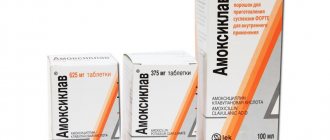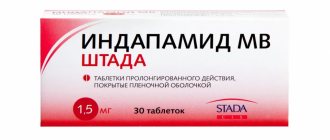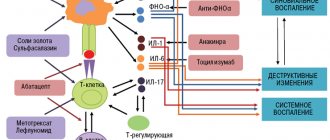Home | About us | Delivery | Advertisers | Login | Registration
The pharmacy is closed on Sundays and holidays.
- Medicines
- dietary supplementsVitamins
- Categories from A to Z
- Brands from A to Z
- Products from A to Z
- Medical equipment
- beauty
- Child
- Care
- Honey products appointments
- Herbs and herbal teas
- Medical nutrition
- Journey
- Making medicinesStock
Pharmacy online is the best pharmacy in Almaty, delivering medicines to Almaty. An online pharmacy or online pharmacy provides the following types of services: delivery of medicines, medicines to your home. Online pharmacy Almaty or online pharmacy Almaty delivers medicines to your home, as well as home delivery of medicines in Almaty.
my basket
Apteka84.kz is an online pharmacy that offers its customers medicines, medicinal and decorative cosmetics, dietary supplements, vitamins, baby food, intimate products for adults, medical equipment and thousands of other medical and cosmetic products at low prices. All data presented on the Apteka84.kz website is for informational purposes only and is not a substitute for professional medical care. Apteka84.kz strongly recommends that you carefully read the instructions for use contained in each package of medicines and other products. If you currently have any symptoms of the disease, you should seek help from a doctor. You should always tell your doctor or pharmacist about all the medicines you take. If you feel you need further help, please consult your local pharmacist or contact our GP online or by telephone.
© 2021 Pharmacy 84.
Co-Prenessa tablets 2mg/0.625mg No. 10x3
Name
Co-Prenessa.
Release forms
Pills.
INN
Perindopril + indapamide.
FTG
Combination antihypertensive agent (ACE blocker + diuretic).
Compound
Co-Prenessa 2 mg/0.625 mg tablets Each tablet contains 2 mg perindopril erbumine and 0.625 mg indapamide. Co-Prenessa 4 mg/1.25 mg tablets Each tablet contains 4 mg perindopril erbumine and 1.250 mg indapamide. Excipients: calcium chloride hexahydrate, lactose monohydrate, crospovidone, microcrystalline cellulose, sodium bicarbonate, hydrated colloidal silicon dioxide, magnesium stearate.
Description
Co-Prenessa 2 mg/0.625 mg tablets Round, slightly biconvex, white or off-white tablets with beveled edges and a short line engraved on one side. Co-Prenessa 4 mg/1.25 mg tablets Round, slightly biconvex tablets of white or almost white color with beveled edges and a score on one side.
Pharmacotherapeutic group
Drugs that affect the renin-angiotensin system. ACE inhibitors in combination with diuretics. ATX code: C09BA04.
Pharmacological properties
Pharmacodynamics
Co-Prenessa is a complex drug containing an angiotensin-converting enzyme (ACE) inhibitor - perindopril erbumine and a chlorosulfamoyl (thiazide-like) diuretic - indapamide. The pharmacological effect of the drug is due to the properties of each of these components, taken separately, as well as the additive synergistic effect of both components when combined.
Pharmacodynamic properties
Related to perindopril Perindopril is an angiotensin converting enzyme inhibitor (ACE inhibitor), which converts angiotensin I to angiotensin I, belongs to the class of vasoconstrictors; In addition, the enzyme stimulates the secretion of aldosterone by the adrenal cortex and stimulates the breakdown of bradykinin, a vasodilator, into inactive heptapeptides. This leads to: - a decrease in aldosterone secretion, - an increase in plasma renin activity due to a decrease in the effect of aldosterone on negative feedback, - a decrease in total peripheral resistance with a predominant effect on the vascular bed in the muscles and kidneys, without concomitant water and salt retention or reflex tachycardia with constant treatment. The antihypertensive effect of perindopril is also observed in patients with low or normal renin concentrations. Perindopril acts through its active metabolite, perindoprilate. Other metabolites are inactive. Perindopril reduces cardiac workload: by a vasodilatory effect on the veins, possibly caused by changes in prostaglandin metabolism: decreased preload, by reduced total peripheral resistance: decreased afterload. Studies conducted on patients with heart failure have revealed: a decrease in left and right ventricular filling pressure, a decrease in total peripheral vascular resistance, an increase in cardiac output and an improvement in cardiac performance index, and an increase in regional blood flow in the muscle. Exercise test results also showed improvement. Related to indapamide Indapamide is a sulfonamide derivative with an indole ring, pharmacologically belonging to the group of thiazide diuretics. Indapamide inhibits sodium reabsorption in the cortical segment. It increases the urinary excretion of sodium and chloride and at least the excretion of potassium and magnesium, thereby increasing diuresis and having an antihypertensive effect. Characteristics of the antihypertensive effect Associated with Co-Preness In patients with high blood pressure, regardless of age, the drug has a dose-dependent antihypertensive effect on diastolic and systolic blood pressure in both the supine and standing positions. The antihypertensive effect lasts for 24 hours. Blood pressure reduction is achieved in less than one month without tachyphylaxis. Stopping treatment does not cause withdrawal syndrome. During clinical studies, the simultaneous administration of perindopril and indapamide caused a synergistic antihypertensive effect relative to each drug prescribed separately. Co-Prenessa tablets 2 mg/0.625 mg alone The effect of the combination with a low dose of Co-Prenessa 2 mg/0.625 mg on cardiovascular morbidity and mortality has not yet been studied. PICXEL, a multicenter, randomized, double-blind, active-controlled study, assessed the effect of perindopril/indapamide combination on LVH on echocardiography compared with enalapril monotherapy. In the PICXEL trial, patients with elevated blood pressure with LVH (defined as left ventricular mass index (LVMI) > 120 g/m2 in men and > 100 g/m2 in women) were randomized to either perindopril 2 mg/indapamide 0.625 mg. or enalapril 10 mg once daily for one year. The dosage was adjusted according to blood pressure control up to 8 mg perindopril and 2.5 mg indapamide or up to 40 mg enalapril once a day. Only 34% of patients continued treatment with perindopril 2 mg/indapamide 0.625 mg (compared to 20% with enalapril 10 mg). At the end of treatment, LVMI decreased significantly more in the perindopril/indapamide group (-10.1 g/m2) than in the enalapril group (-1.1 g/m2) in all randomized groups of patients. The difference in change in LVMI between groups was 8.3 (95% CI (-11.5-5.0), p
Pharmacokinetics
Related to Co-Preness The pharmacokinetic properties of perindopril and indapamide combination are not changed compared to their separate use. Associated with perindopril Following oral administration, perindopril is rapidly absorbed and reaches peak concentrations within 1 hour. The half-life is 1 hour. Perindopril is a prodrug. 27% of the administered dose of perindopril reaches the bloodstream in the form of the active metabolite perindoprilate. In addition to the active perindoprilate, perindopril forms five inactive metabolites. Peak plasma concentrations of perindoprilate are reached after 3-4 hours. Since food intake reduces the conversion of perindopril to perindoprilat, and, consequently, its bioavailability, perindopril tert-butylamine is recommended to be taken orally once a day in the morning before meals. It has been shown that the relationship between the dose of perindopril and its plasma levels is a linear function. The volume of distribution of unbound perindoprilate is approximately 0.2 l/kg. The binding of perindoprilate to plasma protein is 20%, mainly binding to the angiotensin converting enzyme and depends on the concentration of the drug. Perindoprilat is excreted in the urine. The terminal half-life of the unbound fraction is approximately 17 hours. The state of equilibrium is achieved within 4 days. The elimination of perindoprilate is reduced in the elderly and in patients with cardiac or renal failure. Dose selection for patients with renal failure depends on the degree of renal dysfunction (creatinine clearance). The dialysis clearance of perindoprilate is 70 ml/min. The kinetics of perindopril changes in patients with cirrhosis: the hepatic clearance of the parent molecule is reduced by half. However, the amount of perindoprilate formed is not reduced and, therefore, no dose adjustment is required. Bound to indapamide, indapamide is rapidly and completely absorbed from the digestive tract. Peak plasma concentrations in humans are achieved approximately one hour after oral administration of the drug. Plasma protein binding is 79%. The half-life period ranges from 14 to 24 hours (average 18 hours). Repeated administration of the drug does not lead to its accumulation in the body. It is excreted mainly in urine (70% of the dose) and feces (22%) in the form of inactive metabolites. Pharmacokinetics do not change in patients with renal failure.
Indications for use
Co-Prenessa 2 mg/0.625 mg and 4 mg/1.25 mg Primary arterial hypertension. Co-Prenessa 4 mg/1.25 mg Co-Prenessa tablets 4 mg/1.25 mg are prescribed to patients when blood pressure is not sufficiently controlled with perindopril monotherapy.
Contraindications
Perindopril-related Hypersensitivity to perindopril or any other ACE inhibitors. History of angioedema (Quincke's edema) associated with taking ACE inhibitors. Hereditary or idiopathic angioedema. Second and third trimesters of pregnancy. The simultaneous use of Co-Prnessa and aliskiren-containing drugs is contraindicated in patients with diabetes mellitus or renal failure (GFR
Directions for use and doses
For oral administration. Co-Prenessa 2 mg/0.625 mg The usual dose is 1 tablet 1 time per day, preferably in the morning before meals. If after one month of treatment the blood pressure is not controlled, the dosage may be doubled. Co-Prenessa 4 mg/1.25 mg Co-Prenessa tablets 4 mg/1.25 mg are prescribed in cases where blood pressure control cannot be achieved by taking Co-Prenessa tablets 2 mg/0.625 mg. The usual dose is 1 tablet 1 time per day, preferably in the morning before meals. Individual dose selection is carried out, if possible, by each component separately. If clinically necessary, it is possible to prescribe Co-Preness tablets 4 mg/1.25 mg if perindopril monotherapy is ineffective. Elderly patients Co-Press 2 mg/0.625 mg Initial dose - 1 tablet 1 time per day. Co-Prenessa 4 mg/1.25 mg Treatment should be initiated after assessing blood pressure response and renal function. Patients with impaired renal function Co-Press 2 mg/0.625 mg and 4 mg/1.25 mg In case of severe impaired renal function (creatinine clearance below 30 ml/min), treatment is contraindicated. For patients with moderate renal impairment (creatinine clearance 30-60 ml/min), the maximum dose of Co-Prenessa is 2 mg/0.625 mg - 1 tablet once a day. Co-Prenessa 4 mg/1.25 mg In patients with moderate renal impairment (creatinine clearance 30-60 ml/min), it is recommended to begin treatment with an adequate dose of the free combination. Patients with creatinine clearance greater than or equal to 60 ml/min do not require dose modification. Routine medical monitoring should include frequent monitoring of creatinine and potassium. Patients with impaired liver function Treatment is contraindicated in cases of severe hepatic impairment. No dose modification is required in patients with moderate hepatic impairment.
Children and teenagers
Co-Prenessa tablets 2 mg/0.625 mg and tablets 4 mg/1.25 mg should not be prescribed to children and adolescents, since the effectiveness and tolerability of perindopril in mono- or combination therapy in this category of patients have not been established. Co-Press tablets should be taken regularly, every day. If a drug dose is missed, the patient should continue treatment according to the prescribed regimen without doubling the dose.
Side effect
Taking perindopril inhibits the renin-angiotensin-aldosterone system and reduces potassium loss caused by indapamide. Hypokalemia (potassium level
Manufacturer
KRKA, d.d., Slovenia, Slovenia
Instructions
Instructions for the drug 737.33kB


